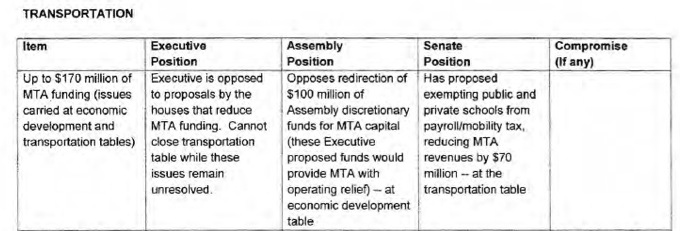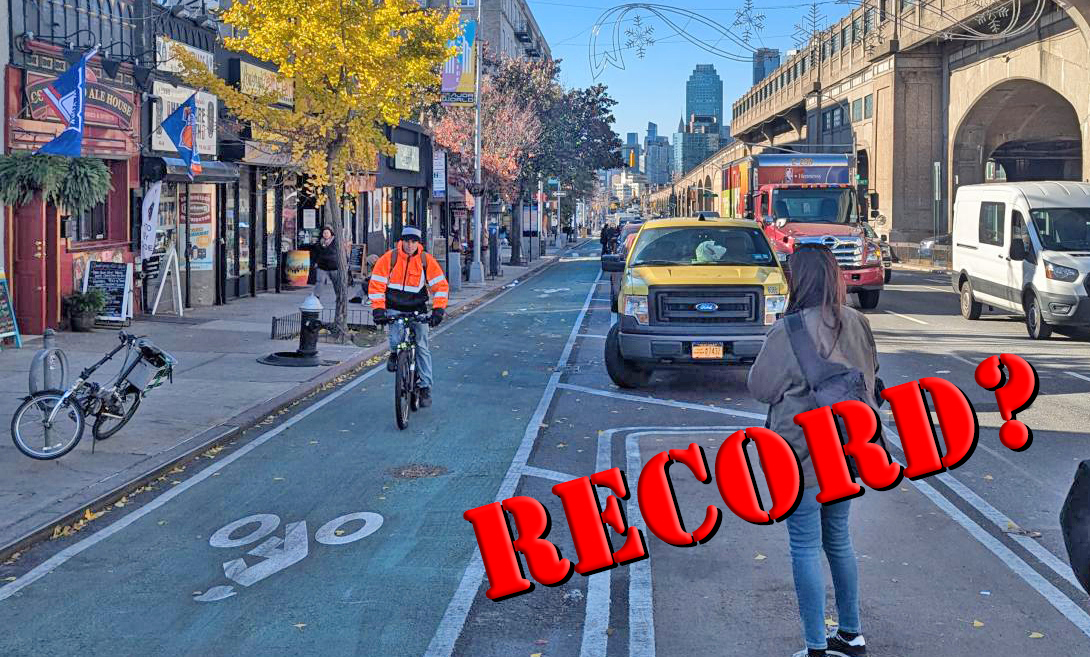When Andrew Cuomo released his executive budget in February, it included a $100 million raid on dedicated transit funds. As Cuomo hammers out the budget in negotiations with the State Assembly and Senate, however, it seems that the MTA could lose up to another $170 million. Both houses of the legislature are seeking cuts and the issue appears to be very much alive.
The repercussions of a $270 million cut could be very serious for transit riders; it was a $143 million raid last year that triggered an unprecedented round of service cuts and fare hikes.
The newest threats to transit funding come from each house of the legislature, as revealed in an internal Cuomo administration budget negotiations cheat sheet uncovered by the New York Times. The memo lists the still-unresolved issues in budget negotiations, though you can never be sure whether a document like this shows what the Cuomo administration believes or what the Cuomo administration wants you to think it believes.
According to the memo, transit funding could be reduced in two possible ways. First, the Senate Republicans' budget, which passed that house last week, contains that conference's first steps toward repealing the payroll mobility tax. It exempts both public and private schools from paying the payroll tax, which would reduce revenues by $70 million.
On the Assembly side, $100 million in transit funds are in jeopardy. When Cuomo decided to steal $100 million from the MTA's dedicated funds, he actually structured it as a $200 million raid offset by granting the MTA $100 million from elsewhere in the budget. The problem is that "elsewhere" meant the Assembly's discretionary funds. Unsurprisingly, Assembly members aren't too excited about having the governor take $100 million in earmarks away from them, and they have not proposed an alternative source for recouping that $100 million for the MTA.
According to the memo, the Cuomo administration is opposed to both proposals. The governor's team says it "cannot close the transportation table while these issues remain unresolved," according to the document, but the column labeled "compromise (if any)" remains blank.






